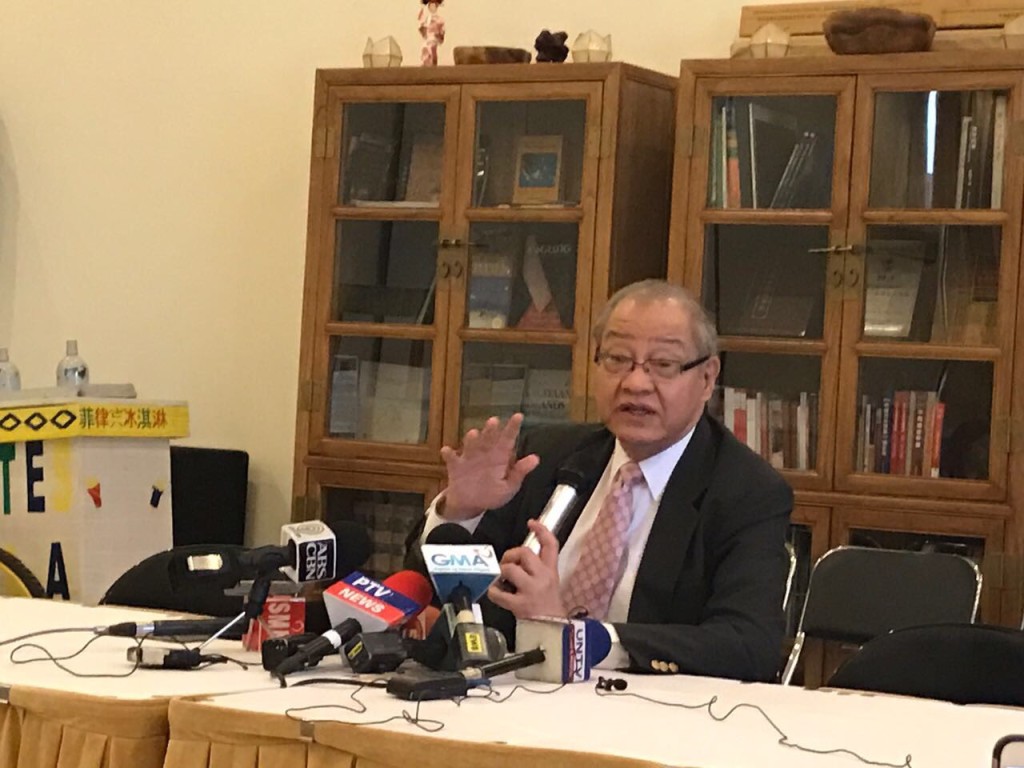BEIJING — The Philippine and Chinese governments are scheduled to start this week ther first bilateral consultative mechanism to discuss overlapping claims in the South China Sea, amid concerns that the dispute has been set aside in favor of Chinese economic perks, Manila’s envoy said on Saturday.
Philippine Ambassador to China Jose Santiago Sta. Romana said diplomats from both sides were to meet on a twice yearly basis.
The bilateral mechanism has been expected since October last year when President Rodrigo Duterte made a state visit to China. It was also mentioned in a joint statement issued by both governments, calling for a platform to discuss the raging dispute.
“[This] week, we will inaugurate the bilateral consultative mechanism on issues that are of particular concern. This is where the sensitive issues will be discussed. The first session would be [this] week but this is gonna be a session that would convene on a twice yearly basis, a chance to exchange views on the South China Sea issue,” Sta. Romana said.
Sta. Romana did not release other details of the upcoming meeting, only saying that both countries were expected to initially come up with the “terms of reference” to be used in the talks.
He said that the bilateral talks were meant to “build a bridge of understanding.”
The Duterte government has taken a softer stance in forwarding its stake in the South China Sea. It has sought to play down a legal victory it won last year when an international court invalidated many of China’s claims over the contested waters.
Sta. Romana said that the dispute, however, should “not be the sum total of our relationship” with China.
Manila’s strategy was to now take the political issue as a “separate track” from their economic cooperation, he said.
“If you put it front and center, the disputes that cannot be solved overnight, it’s going to poison the atmosphere,” he said.
The strategy has already led to improved bilateral relationship which bore fruit in terms of billions of dollars worth of pledges and loans from both the Chinese public and private sector.
In March, Philippine and Chinese trade officials signed the summary of discussions for the 28th Philippines-China Joint Commission on Economic and Trade Cooperation, signaling renewed interests after a five-year hiatus that began when tensions were high over the South China Sea.
Sta. Romana said the issue could not be resolved overnight, but sought to assure the public that the legal victory was already a part of the international maritime jurisprudence.
“It will always be there in the law books. It will be studied by generations of law schoolers. So it will be there forever. Those who are afraid should not fear. why should you fear when you are right, when you won the case?” he said.


